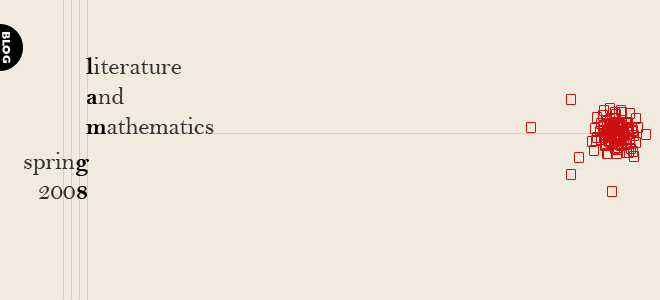The ending of Pi shows Max ridding his mind of the evils of mathematics with a drill to his temple. Although this can't be taken literally, it makes me wonder if he was truly happy after everything was said and done. His whole life, or the span of time we could witness in the film, revolved around mathematics. Could someone really be at ease if they lose the one thing they're truly passionate about?
One part of the ending that we didn't talk about in class that I feel is relevant is the scene where the bratty little neighbor asks Max to solve some equations and he fails to come up with answers. Did Max not know the solutions or did he just choose not to answer?
Overall, I believe that Max is still a deeply troubled person. The erratic behavior that he displays could easily be triggered by other events, possibly those that contain the intricate patterns that math contains. I'm still rather confused as to what scenes in the film actually occurred and what were nothing more than dreams. For instance, the battle between money and religion could be interpreted as literal, or as simply a nightmare or inner conflict. However, the appeal of this movie, to me, is that it is up for so many different interpretations.
What is your interpretation?
Friday, April 4, 2008
Happily Ever After? Part II
Subscribe to:
Post Comments (Atom)

2 comments:
I also think that it isn't clear what actually happened in Pi. It is interesting that a movie that is centered around mathematics, a field of knowledge that has objective answers and very little room for subjectivity, has so many unanswered questions and subjectivity.
I found it a little contradictory to show his "happy ending" being an ending where he is not able to solve the calculations the little girl is asking him. If his whole life was consumed in mathematics how could he be happy without it. The math gave his life meaning. To take it all away would leave Max empty. I don't buy the happy ending.
Post a Comment